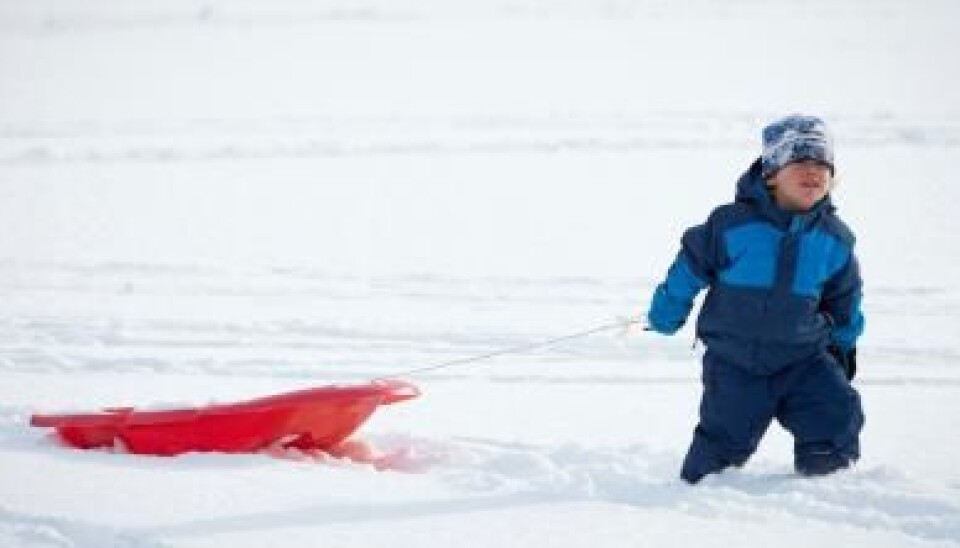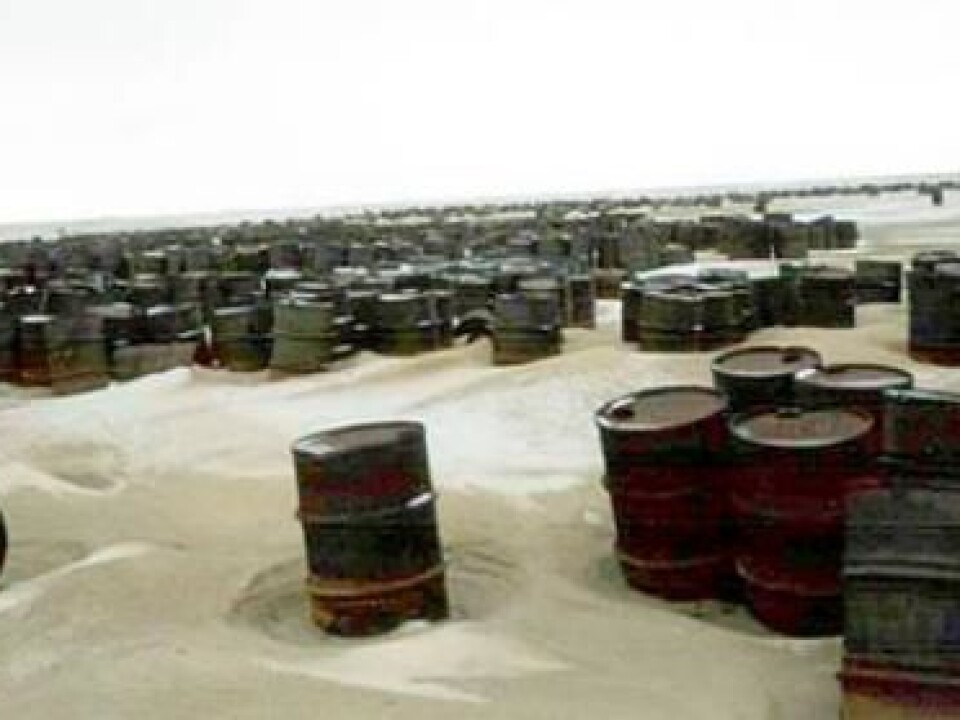An article from University of Tromsø – The Arctic University of Norway

The toxin that steals sons
Environmental toxins can cause fewer male children to be born in Arctic populations.
Denne artikkelen er over ti år gammel og kan inneholde utdatert informasjon.
The Arctic is vulnerable. Environmental toxins from industrial and military facilities collect here, and become an un-welcome part of the flora and fauna.
The research project Arctic Monitoring and Assessment Programme (AMAP) has worked with environmental issues in the Arctic since 1991.
Gynaecologist, epidemiologist and professor of social medicine at the University of Tromsø, Jon Øyvind Odland, is one of the key forces in AMAP. He has worked with maternal/infant health and maternity care in Russia for 20 years. During this period the circumpolar AMAP collaboration was established, where one of the most important tasks is to investigate the effects of environmental toxins on foetal development and pregnancy outcome.
Miscarriages of male foetuses

“We now have a better overview of the effects of environmental toxins on reproduction and the pregnancy development. We know they could have an impact on birth weight, sperm quality, ovulation and menstruation, that they might increase the number of miscarriages, hamper foetal development, cause failure of the placenta and lead to more premature births,” Odland says.
Perhaps the most surprising consequence is that environmental toxins might affect the birth rate for genders.
“Our research shows that environmental toxins could cause miscarriages of male foetuses. It appears as if the Arctic population is losing its sons,” Odland says.
The researchers cannot yet say for certain whether environmental toxins are impacting the gender balance, but the preliminary results give cause for concern. They suspect that environmental toxins cause more frequent miscarriages of male foetuses.
The professor stresses that the researchers have an ethical obligation to inform the public and the authorities when they suspect serious health hazards, as in this case.
But the miscarriage of male foetuses may not be the most serious consequence in the Arctic.
“It could be that we still haven’t uncovered the most serious effects of the environmental toxins,” Odland warns.
Toxic nutrition sources
Another important question is the impact of climate change on the spread of environmental toxins. Odland is worried:
“We have seen that climate change causes unpredictability in the natural environment. Rivers are getting warmer, glaciers are melting and the tundra is changing. This means that the very basis of existence for both humans, animals and birds is changing,” he says.
Researchers don’t know how much environmental toxin is stored in the ice, but these toxins will be released as the temperature rises and will then enter the food chain of the Arctic population.
Researchers are already smack in the middle of a dilemma called “the Arctic Problem”. The really good nutritional sources used by indigenous groups in the Arctic contain hazardous levels of environmental toxins.
Should researchers warn people to stay away from these foods?
Pregnant women warned
It’s not all that dangerous for older men to consume these environmental toxins. Focus is on the young, those of reproductive age, meaning those who want to have children or are already pregnant.
"We have asked them to remove some of the worst sources of toxin from their diet, even though they otherwise are very nutritious,” Odland says.
The worst sources of toxins are seal and whale meat, as well as fatty fish, because the toxins mostly are fat-soluble.
On the Faeroe Islands whale is a natural part of the diet, but the authorities there have warned pregnant women against eating some types of whale due to the hazardous toxin levels.
International agreements
The environmental toxin issue affects all Arctic countries. The actions of individual countries will not be enough.
According to Odland, international cooperation is the only thing that will work.
“We need to get international agreements in place. Environmental toxins do not respect national borders and they present us with a completely new public health problem,” he says.






























